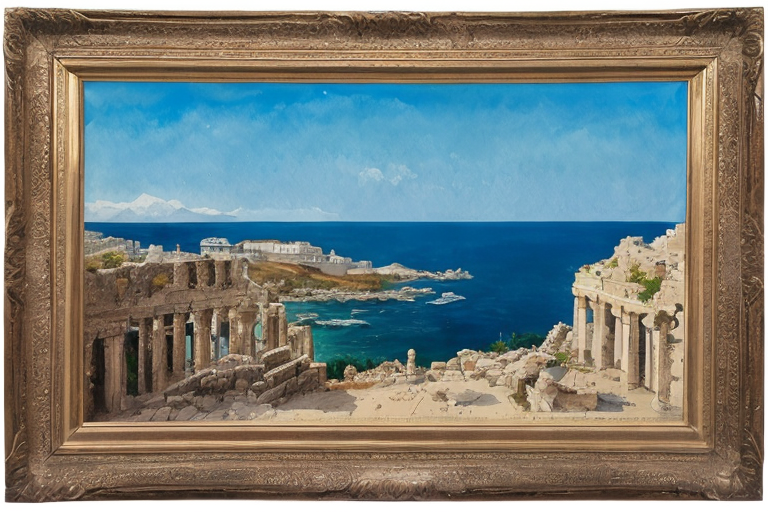
Once upon a time, in the 19th century, there was a remarkable traveler named Lord Byron, whose journeys through Greece left an indelible mark on history. Born in 1788, George Gordon Byron, the 6th Baron Byron, was not only a renowned poet but also an avid adventurer with a passion for exploring the world.
Lord Byron’s connection with Greece was profound, driven by his fascination with its rich history, classical ruins, and the spirit of independence that permeated the air. In 1809, at the age of 21, Byron embarked on the Grand Tour, a traditional journey undertaken by young European aristocrats to enhance their education and cultural understanding.
Byron’s travels through Greece, from 1810 to 1811, were a pivotal chapter in his life. Inspired by the classical tales of ancient Greece, he was captivated by the ruins of Athens, Corinth, and Delphi. His experiences fueled his romantic imagination, leading him to compose some of his most famous works, including the epic poem “Childe Harold’s Pilgrimage.”
However, Lord Byron’s impact on Greece went beyond poetry. In the early 19th century, Greece was under Ottoman rule, and its people yearned for independence. Byron, moved by the Greek War of Independence, decided to take a proactive role. In 1823, he traveled to Missolonghi, a town in western Greece, to join the struggle for freedom.
In Missolonghi, Byron dedicated himself to the cause, using his wealth to fund the Greek fleet and army. He even sold his estate in Scotland to provide financial support. Byron’s charismatic presence and commitment earned him the admiration of the Greek people, who saw him as a hero fighting alongside them.
Tragically, Lord Byron’s time in Greece was cut short. In 1824, at the age of 36, he fell victim to an illness—likely sepsis—while still in Missolonghi. His death was a profound loss for the Greeks, who mourned the passing of their champion. Byron’s legacy, however, endured. His contributions to the Greek War of Independence were celebrated, and he became a symbol of the international support for Greece’s struggle.
Lord Byron’s adventurous spirit, poetic genius, and dedication to the Greek cause have forever linked his name with the landscapes and narratives of Greece. Today, his memory lives on in the verses of “Childe Harold’s Pilgrimage” and in the hearts of the Greek people, who recognize him as a timeless friend and ally in their pursuit of freedom.
Legacy After Death: A Greek National Hero
Lord Byron’s impact on Greece continued long after his death. His efforts and sacrifices for the Greek War of Independence elevated him to the status of a national hero. The people of Greece, inspired by his unwavering support, erected monuments and memorials in his honor.
One such tribute stands in Athens, the city he so ardently admired. The statue of Lord Byron is a prominent feature in the National Garden, a lush oasis nestled in the heart of the capital. Tourists and locals alike visit this serene spot, reflecting on Byron’s legacy and the pivotal role he played in Greece’s struggle for autonomy.
Beyond statues and memorials, Lord Byron’s spirit lives on in the ethos of Greek independence. His commitment to liberty, democracy, and the pursuit of one’s ideals resonates with the values that underpin modern Greece. Byron’s contributions became a source of inspiration not only for poets and writers but for an entire nation that emerged from the shadows of foreign rule.
The impact of Lord Byron’s travels and activism extends to the literary world as well. His vivid descriptions of Greek landscapes, ancient ruins, and the spirit of its people continue to attract travelers and writers seeking to connect with the essence of Greece. Byron’s influence can be felt in countless works that draw inspiration from his romantic portrayal of the Hellenic world.
In essence, Lord Byron’s journey through Greece transcends the boundaries of time. His legacy remains intertwined with the very fabric of the nation he passionately supported. As travelers explore the sun-kissed islands, stroll through ancient ruins, or marvel at the azure waters of the Aegean, they echo the footsteps of a poet-adventurer whose love for Greece left an enduring mark on its history and culture.


No Comment Found.